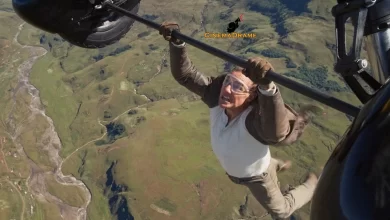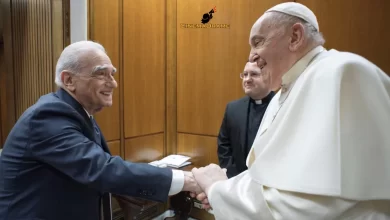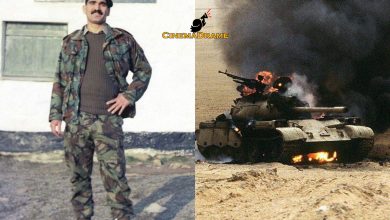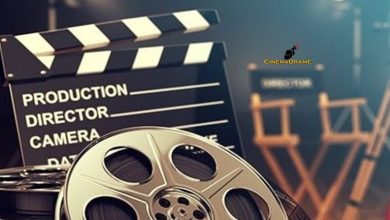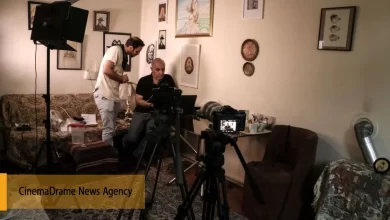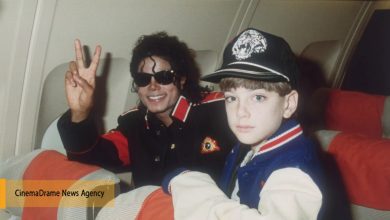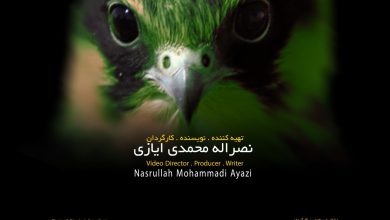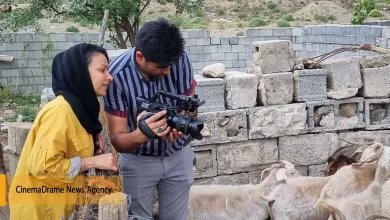“No Other Land” – A Brave and Moving Documentary / A Note by Film Critic Parviz Jahed
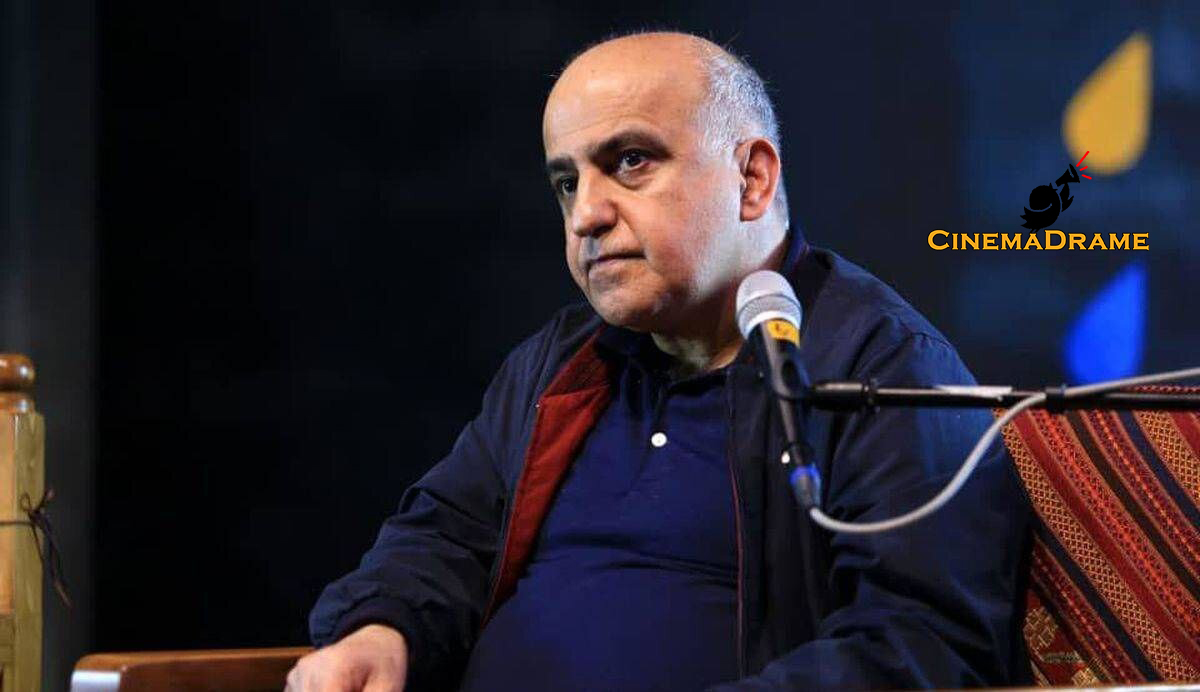
According to cinemadrame news agency, Parviz Jahed, a film writer and critic, wrote a note on the documentary “No Other Land,” which was included in the Oscar shortlists: “We are in a situation where we have collectively lost our sensitivity to the numbers of Palestinian casualties and this immense scale of human death, pain, and suffering. Watching ‘No Other Land‘ might be able to revive our lost human compassion before it’s too late.”
“No Other Land” is a brave and moving documentary about Palestine. This film is the result of a collaboration between Basel Adra, a Palestinian filmmaker and journalist; Hamdan Bilal, a Palestinian photographer and farmer; Yuval Abraham, an Israeli journalist; and Rachel Szor, an Israeli cinematographer. All four participated as directors and editors in this project. Basel and Yuval are the main characters of the film, while Bilal plays an effective role as a challenging and skeptical individual in the group. The film was first shown at the Berlin Film Festival 2024 and won the Best Documentary award.
“No Other Land” covers a short period of Palestinian history. The film begins in 2019 and ends in 2023, focusing on the occupation and destruction of the Masafer Yatta region in the West Bank by Israeli soldiers, the forced displacement of the Palestinian people, and their resistance against Israeli settlers and the army. The main narrator of the film is Adra, who inherited the spirit of resistance and struggle to preserve the village from his father, a man who stands on the front lines of the fight against oppression and occupation. However, Adra lacks his father’s energy and fears he cannot continue the struggle because he has no hope for the fruitfulness of these struggles and becomes more despairing day by day.
“No Other Land” does not directly address the recent Israel-Hamas conflict but merely depicts a glimpse of the injustices, violence, and inequities of the Israeli Defense Forces against Palestinians in recent years. The people of Masafer Yatta village have fought for decades for their right to life. They existed years before the establishment of the state of Israel and the occupation of their lands, although after the arrival of the aggressors in the 1980s and the conversion of their lands into a military training zone for Israeli army tanks, many of them were forced to leave their villages. But those who remained always resisted force and aggression and refused to be completely eliminated and hand over the area to the Israelis. Nevertheless, Israeli soldiers and bulldozers come to the Masafer Yatta area year after year, destroying the homes and schools of the region’s villages.
The main narrative axis is the professional relationship between Yuval Abraham and Basel Adra and their years of friendship, cooperation, and trust in each other. Yuval is an Israeli documentary filmmaker who becomes Basel’s close friend and joins him in the fight against the Israeli Defense Forces. His situation is more complex than Basel’s, because as an Israeli who supports Palestinians, he is tormented by both sides; Israelis see him as a traitor to Jews, while many Palestinians also look at him with contempt and see no difference between him and other Jews. In their first meeting, Basel tells Yuval with an ironic smile: “Oh, you’re an ‘human rights’ Israeli?” In another scene of the film, when Yuval wants to leave Masafer Yatta and visit his family, Basel calls him a coward. The friendship between Yuval and Basel is built on a narrow edge of contradictions because there is a deep and inevitable social distance and gap between them, a result of the Israeli government’s policies and the systematic discrimination that has been imposed on Palestinians for years. A power system that gives Israeli Yuval complete freedom of action but creates many restrictions for Basel Adra. They are in conflict not only because of their nationality and ethnic identity as Palestinian and Israeli, but also because of their status and position in this land; they are not on equal footing. Geographically, they are only 30 minutes apart, but Yuval has basic human rights such as the right to vote, and welfare facilities such as an apartment to live in, while Basel is deprived of all these things. In a scene from the film, Hamdan Bilal, Basel’s colleague who is also a resident of the same village, gets into a sharp and tense argument with Yuval. Yuval honestly considers himself anti-Zionist and loyal to the Palestinian cause, but Bilal replies, “How does that help me?”
For Basel Adra, this struggle is very personal, especially after witnessing his father’s arrest for standing up to oppression and injustice. From the very beginning of the film, we see scenes of the demolition of Palestinian concrete homes. An individual named Ilan, a representative of the Israeli government and responsible for the demolitions, absolutely does not listen to the cries of the residents of Masafer Yatta village who are watching their homes being destroyed by Israeli bulldozers. He symbolizes absolute evil and has complete power to destroy homes. The film is intensely moving, conveying a sense of absolute helplessness to the audience and evoking their empathy, not releasing them long after viewing.
Early in the film, Yuval and Basel both hope to find a way to end the occupation, violence, and cruelty. Basel hopes that major global powers, especially the United States, will end this horrific situation by putting pressure on Israel, although his hope seems more naive and unrealistic given the undeniable and unconditional practical support of the United States for Israel. The film shows that in recent years, Israel’s efforts to expel the residents of Masafer Yatta have intensified, and armed and masked settlers, along with Israeli army forces, have entered the area to accelerate the destruction of Palestinian property. Israeli courts have also supported this plan, and this support has emboldened the demolishers and army soldiers in their violent actions. Despite the resistance of the civilian villagers of Masafer Yatta, including Adra himself, this struggle ultimately reaches a breaking point.
The film was made before the recent conflicts and relies heavily on personal and amateur footage recorded by Palestinian activists like Basel Adra. However, the very act of filming during moments of conflict becomes a weapon of struggle. In a scene from the film, someone holding a camera, while recording the violence and destruction of Palestinian homes, shouts: “I’m filming!” In fact, being unarmed, he wants to scare the invaders and occupiers with his camera and prevent them from working. In essence, “No Other Land” examines the power of the camera against the gun. The camera in “No Other Land” is constantly on, filming the violence of Israeli forces. The camera in this film is not a passive and detached observer, but rather acts in line with and in extension of the active struggle of Palestinians against the violent Israeli occupation. A sense of despair, helplessness, and powerlessness pervades the film, but the filmmakers ultimately offer a glimmer of hope in the heart of solidarity and resistance. The images recorded by Basel and Yuval with their mobile phones and amateur cameras are not of the same kind as those shown by Western news agencies from occupied Palestine. Their professional equipment seems ridiculous and discredited compared to the resources of the filmmakers and the images captured by the simple, amateur cameras of Basel and Yuval, who are deeply present in the heart of the struggle. Amateur cameras have always shown the greatest power and dynamism in capturing the experiences of the oppressed.
“No Other Land” directly places the viewer within the context of violent Israeli actions, and the viewer fully feels the dangers faced by these brave and fearless documentarians, on the one hand during their documentary activities, and on the other hand in resisting the oppressors, and consequently experiences fear, anger, and despair with them. However, the documentarians have not only recorded the resistance of the village people but also intimate and warm moments from Basel’s life and his family that bring the documentary to life. In one of the film’s impactful scenes, Basel and Yuval are sitting outside at night. Yuval jokingly says: “When are we getting married?”
In the film, we see how a villager named Haroun Abu Aram, in January 2021, is shot in the neck by an Israeli army soldier and becomes paralyzed from the shoulders down. The filmmakers recorded this violent act in horrific detail and show his gradual decline over two years. Aram died in February 2023. In one of the final scenes of the film, when international journalists interview Haroun’s grieving mother and want to report the story of his shooting, their behavior in dealing with the reality of Palestinian life appears theatrical, superficial, and fake. Haroun’s mother is completely disappointed that no real effort is made by the journalists to understand her and her son’s suffering.
In a scene from the film, Basel Adra utters a sentence that expresses the main theme of the film: “This is a story about power.” That powers must be constantly questioned and challenged for everything they impose. The film’s tone is frank and angry, avoiding any ambiguous illusions about the face of the Israeli occupation and the violence of Israeli soldiers and settlers. This very directness and fearlessness of the film caused a negative wave against the film after its screening at the Berlinale by pro-Zionist media and German politicians supporting Israel. Basel Adra, after receiving the award at the ceremony, said: “It is very difficult for me to celebrate when tens of thousands of my people are being massacred.” He called on Germany to stop exporting weapons to Israel.
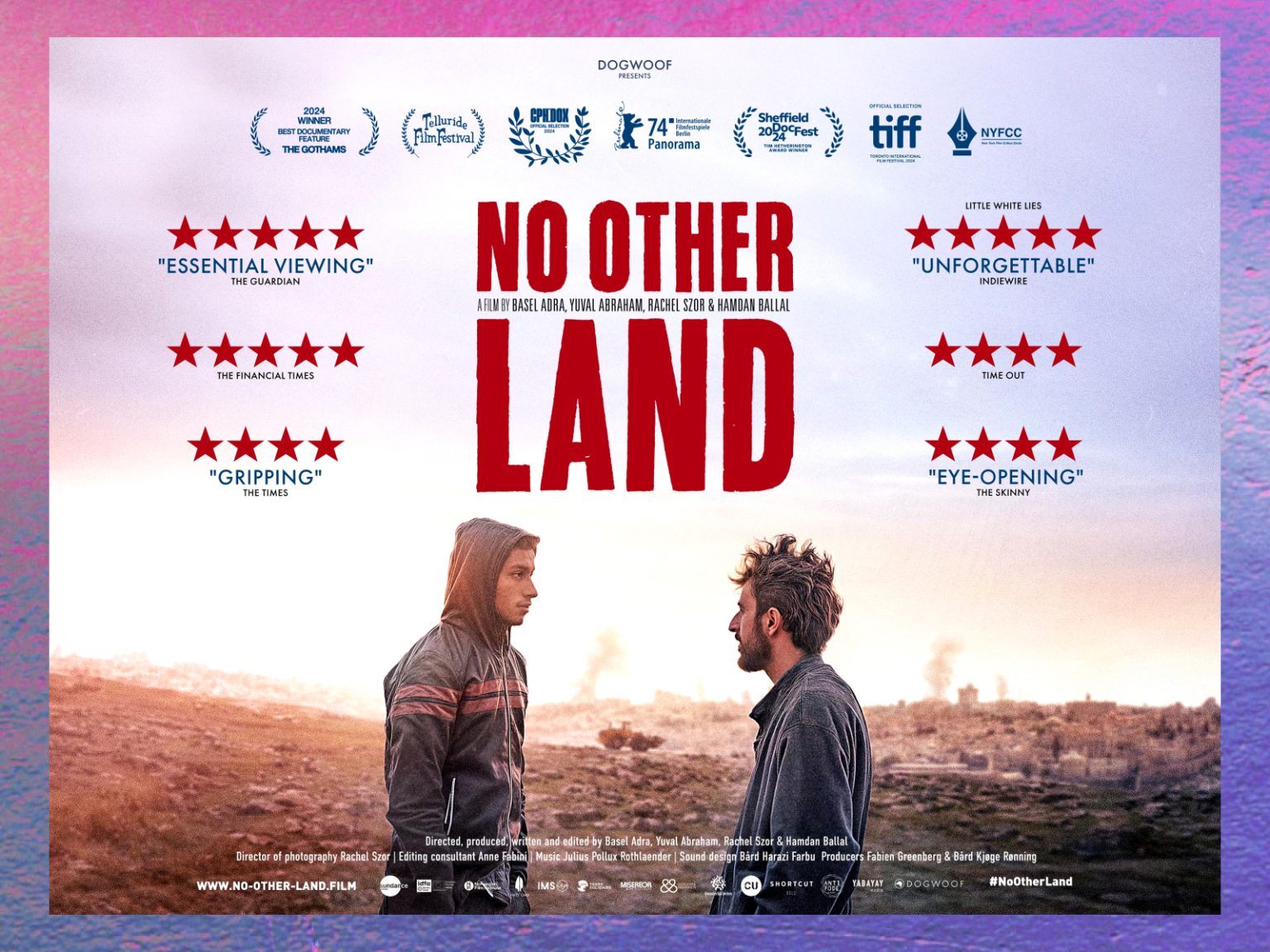
Yuval Abraham’s words and his call for a ceasefire also angered some Israelis, and they threatened him with death on charges of antisemitism. Claudia Roth, Germany’s Minister of Culture, only applauded Yuval Abraham and insisted that she only clapped for him. The German Ministry of Culture and Media also issued a statement saying: “Claudia Roth’s applause was for the Jewish-Israeli journalist and filmmaker, Yuval Abraham, who supported a political solution and peaceful coexistence in the region.” Kai Wegner, the conservative mayor of Berlin, later condemned the Berlin Festival for screening this film and the anti-Israeli speech of its makers, and attributed the killing of more than 45,000 Palestinians solely to Hamas, thereby covering up years of Israeli occupation and violence, discrimination, extremism, and suppression of Palestinians, which has now reached its tragic climax in the Gaza Strip. Ron Prosor, Israel’s ambassador to Berlin, also accused German cultural institutions of laying out a “red carpet” for anti-Israeli activists over the weekend. Yuval Abraham, in response to criticism from German officials, said: “How dare German politicians tell an Israeli whose entire family either survived or was massacred in the Holocaust what antisemitism is?” He also said: “We stood on stage together, an Israeli and a Palestinian calling for equality and an end to the war.” Yuval said that as he was preparing to fly to Israel, he encountered individuals who threatened him, saying they would be waiting for him at the airport.
Unfortunately, this film, which is essential for all who are still unaware of the historical and real roots of the conflict between Palestine and Israel and the suffering of Palestinians, has not yet found a distributor in the United States. Watching this film can be useful and impactful for those potential audiences, especially fervent Israeli supporters among Iranians who have little awareness and understanding of the history of the occupation of Palestine and the struggles of Palestinians to expel the Israeli occupiers, and most of whom are influenced by the propaganda and lies of media outlets affiliated with governments supporting Israel. It might lead to a change in their limited and inhumane perspective and view.
According to official statistics, as of December 10, 2024, 44,768 Palestinians have lost their lives, and 1.9 million residents of Gaza have been displaced. We are in a situation where we have collectively lost our sensitivity to these figures and this immense scale of human death, pain, and suffering. Watching “No Other Land” might be able to revive our lost human compassion before it’s too late. Films like “No Other Land” are a cry against injustice and a plea for help. Films that document the violence, oppression, and destruction of innocent and oppressed people, and whose makers, through their distribution and screening, hope to change the existing situation.
